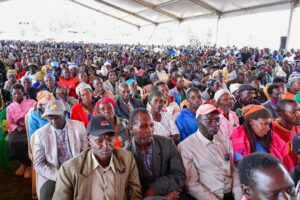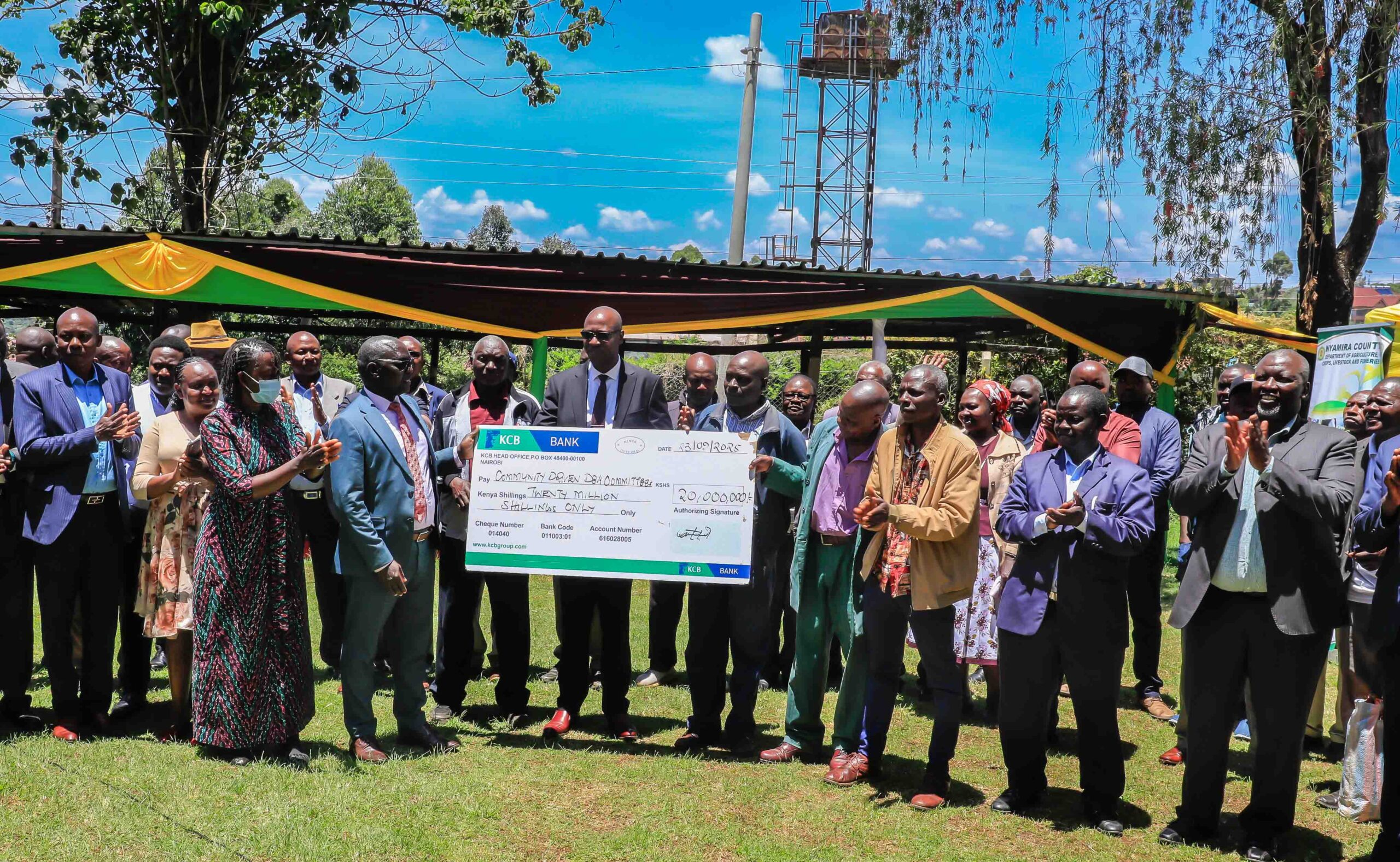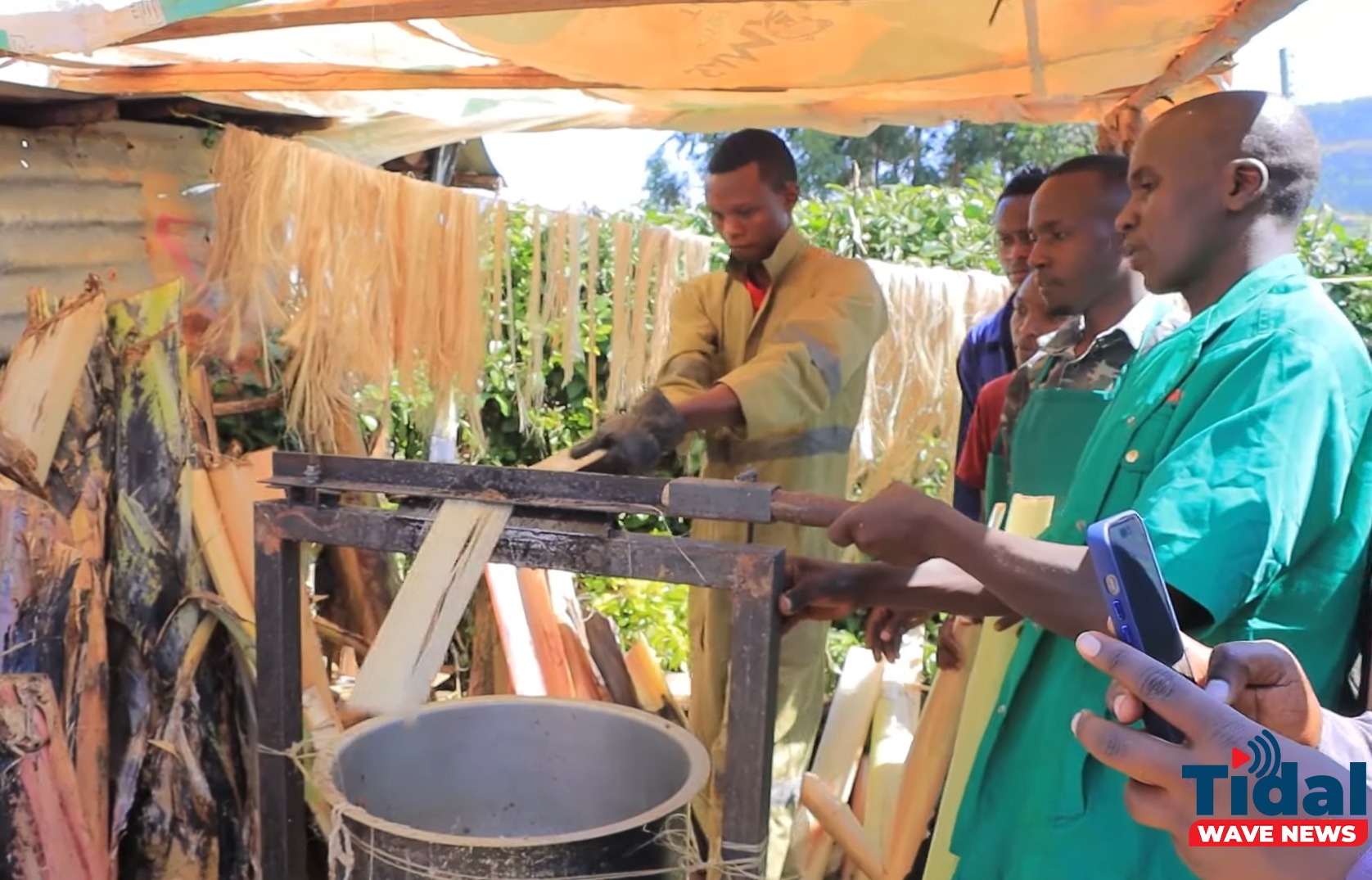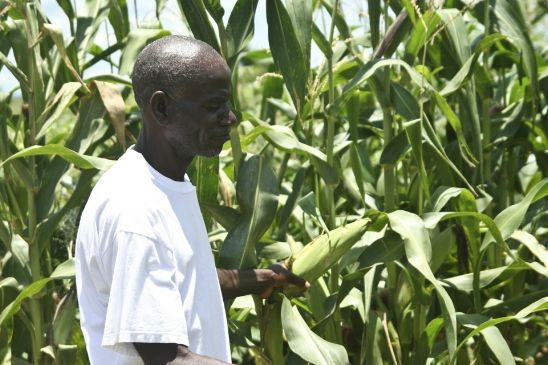
By Arnold Ageta
Kenya’s coffee farmers are set to receive higher earnings and increased production under new government-backed reforms aimed at revitalizing the sector.
Speaking today at Ekerenyo in Nyamira County during a farmers’ sensitization forum, the Cabinet Secretary for Co-operatives and Micro, Small and Medium Enterprises (MSMEs) Development, Wycliffe Oparanya, emphasized the need for farmers to embrace the new coffee reforms designed to benefit them.
Under the new model, farmers will be paid KSh 40 per kilogram of coffee delivered to their societies.
“Of this amount, 80 per cent will go directly to the farmers, while 20 per cent will be retained by the cooperative society for operational expenses,” the Cabinet Secretary announced.
CS Oparanya said the new payment method, dubbed the Direct Settlement System (DSS), will allow farmers to receive payments directly into their bank accounts without depending on their societies.
The DSS is intended to ensure farmers are paid within five days after their coffee is traded at the Nairobi Coffee Exchange.
Although Nyamira County societies’ chairpersons had opposed the introduction of the DSS in a memorandum to the CS, Oparanya dismissed their concerns, saying they should put aside personal interests for the benefit of farmers.
“DSS will ensure that farmers are not exploited by cooperative leaders who delay payments for no reason,” Oparanya warned. “The leaders argue that paying cherries directly to farmers will render cooperative societies insignificant.”
As part of the reforms, the Cabinet Secretary also hinted at introducing term limits for society leaders to prevent the personalization of societies, which often leads to mismanagement and misuse of funds.
Oparanya promised that, going forward, cooperative societies will not take bank loans without the approval of the Commissioner for Cooperatives.
“Chairmen of societies have been burdening farmers with loans that end up in their own pockets, leaving farmers to repay loans that never benefited them,” he regretted.
On debts, the Cabinet Secretary said the President had ordered all coffee cooperative society debts to be waived to give farmers a fresh start and boost coffee production.
“The President announced that all coffee debts will be waived after the allocation of KSh 6.8 billion to clear them,” he said. “Already, KSh 2 billion has been disbursed to the Ministry of Cooperatives to begin payments.”

To improve coffee production in Nyamira County, Oparanya promised that every ward will receive two extension officers trained in coffee farming to assist farmers on their farms.
“In partnership with the county government, we will boost coffee farming by providing extension services and offering subsidized farm inputs, such as fertilizers, which will cost KSh 2,500,” he announced.
The Ministry, in collaboration with the New Kenya Planters Cooperative Union (New KPCU), will also provide coffee seedlings and modern processing equipment to improve coffee quality.
“We will also consider your request to establish a milling machine in Nyamira, on condition that you increase coffee production, because it is an expensive venture,” he urged.
New KPCU Managing Director Timothy Mirugi emphasized that the Coffee Cherry Advance Revolving Fund (CCARF) was established to provide affordable, sustainable, and accessible cherry advances to smallholder coffee farmers.
“New KPCU was mandated to manage and administer the fund without favoritism,” he said.
He also announced plans to partner with the National Cereals and Produce Board (NCPB) to deliver coffee inputs directly to societies.
“For those interested in subsidized farm inputs, you need to register with your societies as we continue the delivery process,” he said.
Oparanya expressed concern that Kenya is lagging in coffee farming, with only 33 counties growing coffee Nyamira and Kisii among them.
“Nyamira County produces 710,000 tonnes of coffee, while Kisii produces 1,560,000 tonnes, compared to the neighboring Kericho County, which produces 5,527,000 tonnes,” he noted.
Nyamira Governor Amos Nyaribo, who attended the sensitization forum organized by the New KPCU, supported the reforms, saying farmers have long suffered at the hands of brokers and cartels.
He urged the Cabinet Secretary to help curb coffee cherry theft, which has often led to the deaths of factory security guards.
“We also request that you donate solar dryers to prevent spoilage of coffee cherries, which take long to dry due to prolonged rainy periods in the county,” Nyaribo said.
North Mugirango MP Joash Nyamoko echoed these sentiments, saying private millers and brokers have fueled coffee cherry theft.
“Coffee theft has caused many deaths in the county. Factory security should be provided by armed police,” he said.
Nyamoko also advocated for the DSS, saying transparency and accountability will only be achieved if the system is adopted.
The forum was also attended by the Ministry’s Permanent Secretary Patrick Kiremi, Commissioner for Cooperatives David Omwoyo, Nyamira County Commissioner Erastus Mbuyi, and New KPCU Chair Daniel Chemno, among others.
Currently, Kenya produces 52,461,000 tonnes of coffee, with Kirinyaga, Nyeri, and Murang’a counties leading in that order.
The Cabinet Secretary said Kenya is determined to revive coffee farming and restore its past glory when it was a global leader in production.
“Kenya currently controls less than one per cent of the global market and, in Africa, ranks fifth after Ethiopia, Uganda, Côte d’Ivoire, and Tanzania,” Oparanya concluded.



